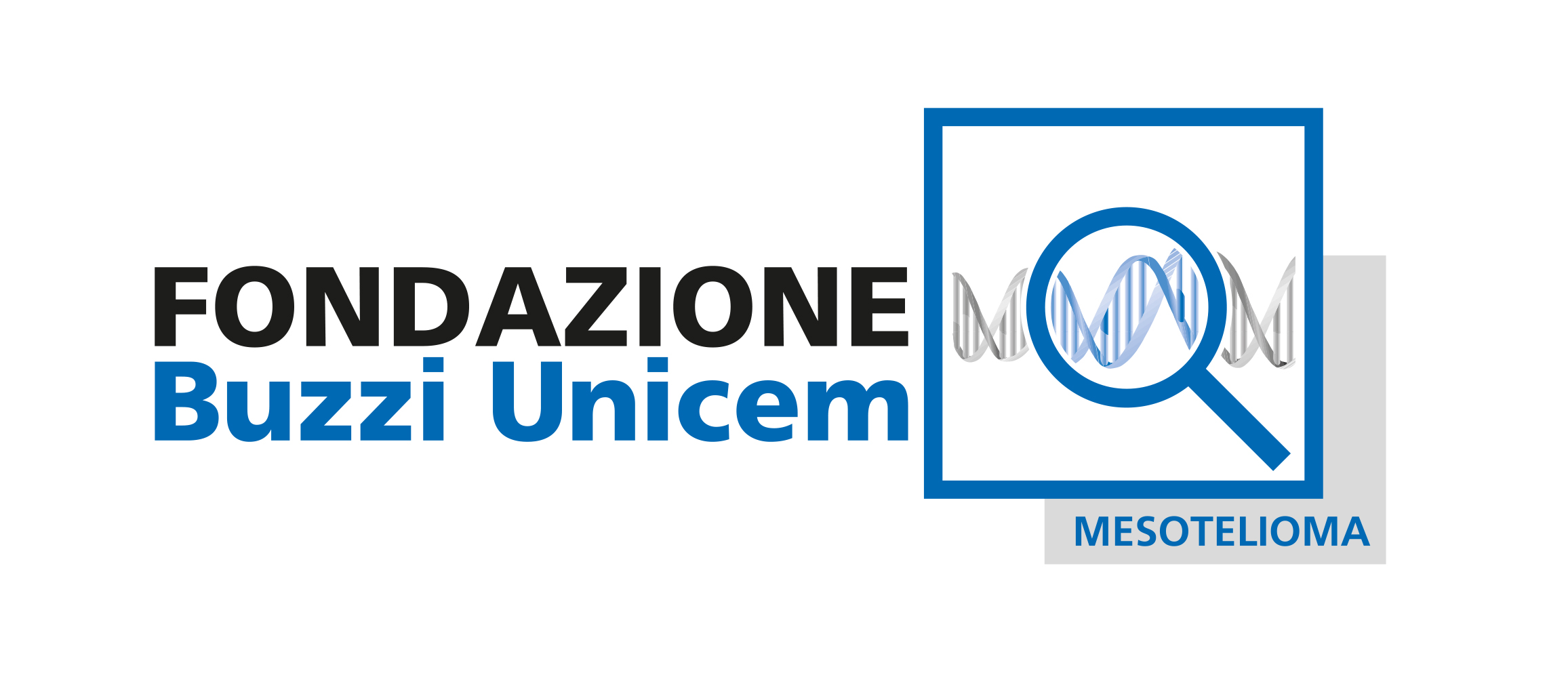Bio-immunotherapy of mesothelioma: clinical use of new therapeutic targets. In vitro data and the first clinical results. PROJECT LEADER:
SUMMARY OF THE RESEARCH PROJECT
FUNDED BY THE BUZZI UNICEM FOUNDATION
PROJECT NAME:
Bio-immunotherapy of mesothelioma: clinical use of new therapeutic targets. In vitro data and the first clinical results.
PROJECT LEADER:
Dr. Michele Maio
SITE:
Ospedale di Siena (Siena Hospital)
PROJECT STATUS:
Completed
RESEARCH SUMMARY:
The clinical study investigating the anti-CTLA-4 human monoclonal antibody (mAb) tremelimumab in the immunotherapy of malignant mesothelioma was initiated in 2009. The anti-CTLA-4 mAb tremelimumab has a dual mechanism of action: it actively stimulates the immune system by enhancing the activity of the patient’s T lymphocyte effector cells, while at the same it inhibits the activity of the T regulatory cells which physiologically “switch off” the response of the immune system, preventing a prolonged state of activation. With this treatment, the patient’s immune system is thus actively stimulated and able to fight the tumor more aggressively and effectively.
An analysis of the initial results show that treatment with the antibody tremelimumab induces a significant increase in the absolute count of T CD4+ and B lymphocyte cells 30 and/or 60 days after the first and second infusion of tremelimumab.
The inducible costimulator (ICOS) was also analyzed as a potential prognostic/predictive response biomarker in patients treated with the anti-CTLA-4 mAb; an increase in the ICOS expression on the T CD4+ lymphocyte cells was observed after treatment.
Overall, the preliminary results appear to be extremely interesting in that not only could the effect on the ICOS+ T-cell subpopulations be used as a biomarker of the immune activation induced by the treatment in patients but it could also reflect a potential mechanism of action of the drug.
Another fundamental aspect of the immunological monitoring in the clinical study includes analyzing the induction of antibody and/or specific anti-tumor cell responses and their association with the clinical response, and/or toxicity, induced by the treatment.
The preliminary results have shown a de novo induction of antibodies and/or increase in the pre-existing antibody titer in certain patients.
Studies evaluating the in vivo expression of the B7-H3 molecule in MM are also ongoing. A member of the B7 family, B7-H3 is a very recently identified co-inhibitory melocule which, like CTLA-4, plays a key role in the anti-tumor immune regulatory mechanisms, and thus represents a potential therapeutic target for future anti-tumor bio-immunotherapy approaches.
Results obtained have shown a significant expression of B7-H3 in tumor tissues of the epithelial but not the sarcomatoid variant, while in the mixed variant the expression of B7-H3 was limited to the epithelial component.
Although these results are preliminary, they corroborate initial observations seen in other tumor isotypes in malignant melanoma, suggesting that B7-H3 could represent a potential target for developing new immunotherapeutic approaches for treating MM, mainly in the epithelial variant.
The study investigating tremelimumab in non-responsive or relapsed patients who have received first-line chemotherapy demonstrated that this treatment was effective in a percentage of the first group of patients treated, and is currently in progress in a second group of patients.
Abstract: Tremelimumab for patients with chemotherapy-resistant advanced malignant mesothelioma
UPDATE (JANUARY 2011)
The data obtained has been published as follows:
Calabrò L., Di Giacomo A.M., Morra A., Cutaia O., Fonsatti E., Danielli R., Altomonte M., Mutti L., Maio M.: A phase II study with the anti-CTLA-4 mAb Tremelimumab in chemotherapy-resistant advanced malignant mesothelioma: safety, tolerability, clinical and immunologic activity. ASCO 2011 [abstract] submitted
Calabrò L., Fonsatti E., Sigalotti L. Natali PG.,. Maio M: Expression and regulation of B7-H3 in benign and malignant mesothelial cells: a novel target for immunotherapeutic applications. J Cell Physiol. 2010 Dec 28. [Epub ahead of print]
Calabrò L, Danielli R, Sigalotti L, Maio M.: Clinical studies with anti-CTLA-4 antibodies in non-melanoma indications. Semin Oncol. 2010 Oct;37(5):460-7. Review.
Fratta E, Coral S, Covre A, Nicolay HJM, Fonsatti E, Sigalotti L, and Maio M. Epigenetic and cancer, in: “Epigenome: from the control of cell growth to cancer”, Wiley editor, 2010
Anzalone L., Danielli R., Fonsatti E., Maio M.: Il mesotelioma maligno della pleura: aspetti immunologici. Il Pensiero Scientifico Editore 2007 (Malignant pleural mesothelioma: immunologic aspects.
Sigalotti L, Fratta E, Coral S, Cortini E, Covre A, Nicolay HJM, Anzalone L, Pezzani L, Di Giacomo AM, Fonsatti E, Colizzi F, Altomonte M, Calabrò L, Maio M.
Epigenetic drugs as pleiotropic agents in cancer treatment: biomolecular aspects and clinical applications. J. Cell. Physiol., 212: 330-344, 2007.
